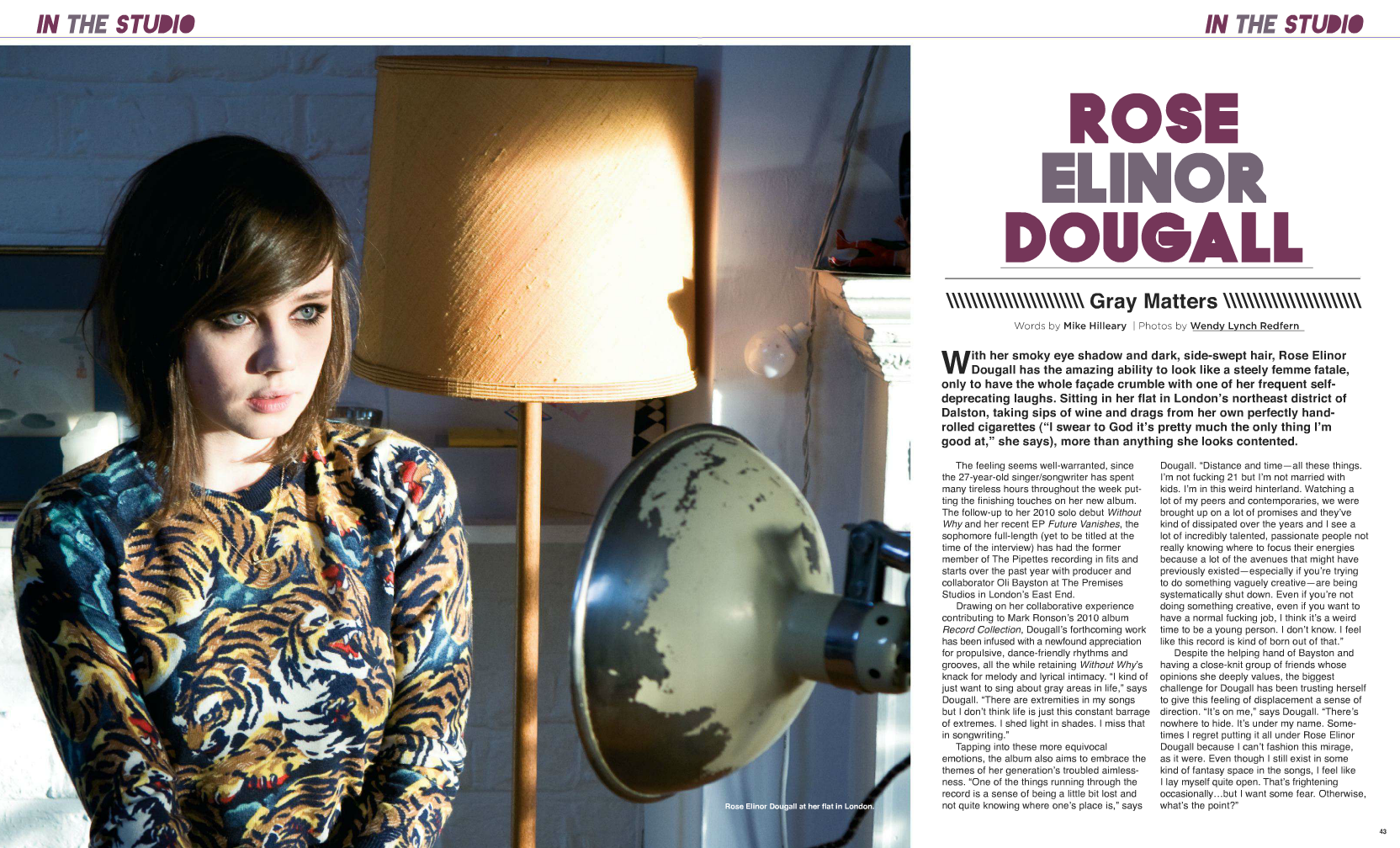Under the Radar, Issue 49
With her smoky eye shadow and dark, side-swept hair, Rose Elinor Dougall has the amazing ability to look like a steely femme fatale, only to have the whole façade crumble with one of her frequent self-deprecating laughs. Sitting in her flat in London's northeast district of Dalston, taking sips of wine and drags from her own perfectly hand-rolled cigarettes ("I swear to God it's pretty much the only thing I'm good at," she says), more than anything she looks contented.
The feeling seems well-warranted, since the 27-year-old singer/songwriter has spent many tireless hours throughout the week putting the finishing touches on her new album. The follow-up to her 2010 solo debut Without Why and her recent EP Future Vanishes, the sophomore full-length (yet to be titled at the time of the interview and tentatively due out in September) has had the former member of The Pipettes recording in fits and starts over the past year with producer and collaborator Oli Bayston (who also releases his own music as Boxed In) at The Premises Studios in London's East End. The album was then mixed by Claudius Mittendorfer (Temples, Jens Lekman, Neon Indian).
Drawing on her collaborative experience contributing to Mark Ronson's 2010 album Record Collection, Dougall's forthcoming work has been infused with a newfound appreciation for propulsive, dance-friendly rhythms and grooves, all the while retaining Without Why's knack for melody and lyrical intimacy. "I kind of just want to sing about gray areas in life," says Dougall. "There are extremities in my songs but I don't think life is just this constant barrage of extremes. I shed light in shades. I miss that in songwriting."
Tapping into these more equivocal emotions, the album also aims to embrace the themes of her generation's troubled aimlessness. "One of the things running through the record is a sense of being a little bit lost and not quite knowing where one's place is," says Dougall. "Distance and time—all these things. I'm not fucking 21 but I'm not married with kids. I'm in this weird hinterland. Watching a lot of my peers and contemporaries, we were brought up on a lot of promises and they've kind of dissipated over the years and I see a lot of incredibly talented, passionate people not really knowing where to focus their energies because a lot of the avenues that might have previously existed—especially if you're trying to do something vaguely creative-are being systematically shut down. Even if you're not doing something creative, even if you want to have a normal fucking job, I think it's a weird time to be a young person. I don't know. I feel like this record is kind of born out of that."
Despite the helping hand of Bayston and having a close-knit group of friends whose opinions she deeply values, the biggest challenge for Dougall has been trusting herself to give this feeling of displacement a sense of direction. "It's on me," says Dougall. "There's nowhere to hide. It's under my name. Sometimes I regret putting it all under Rose Elinor Dougall because I can't fashion this mirage, as it were. Even though I still exist in some kind of fantasy space in the songs, I feel like I lay myself quite open. That's frightening occasionally...but I want some fear. Otherwise, what's the point?"




